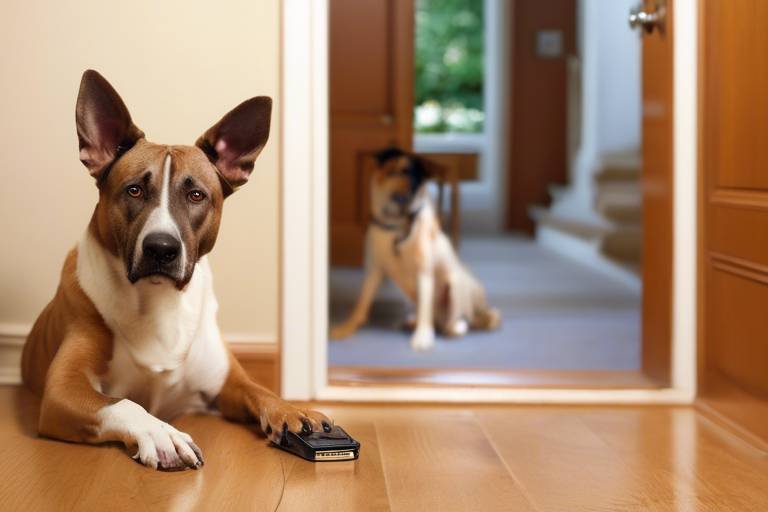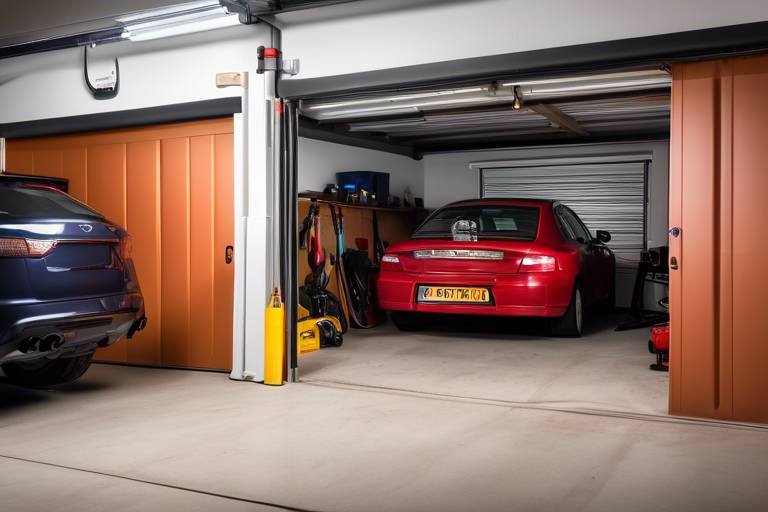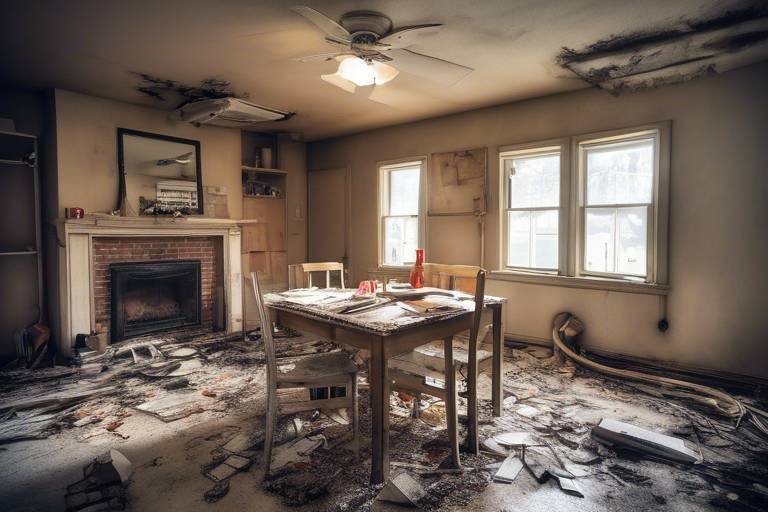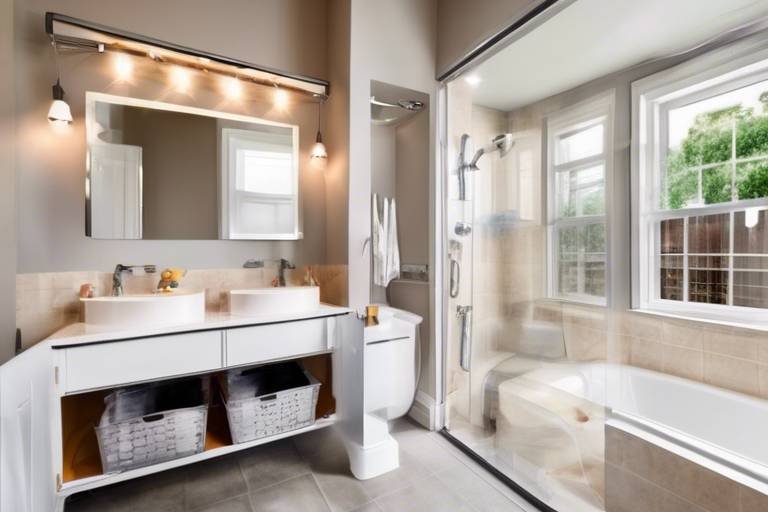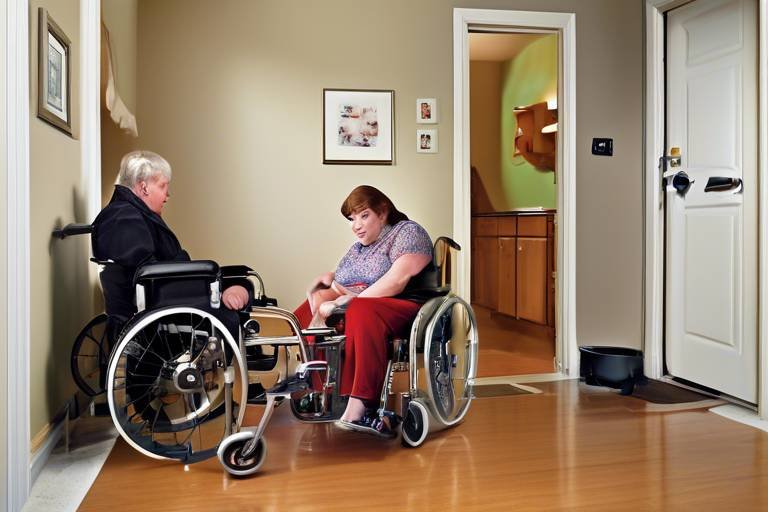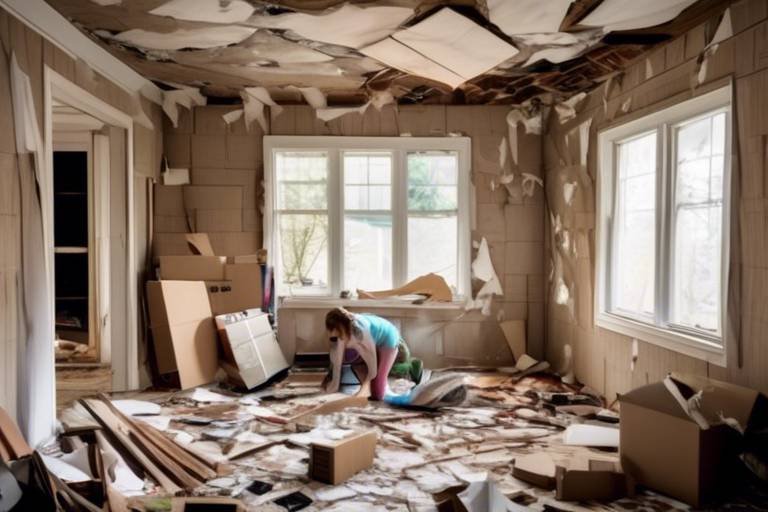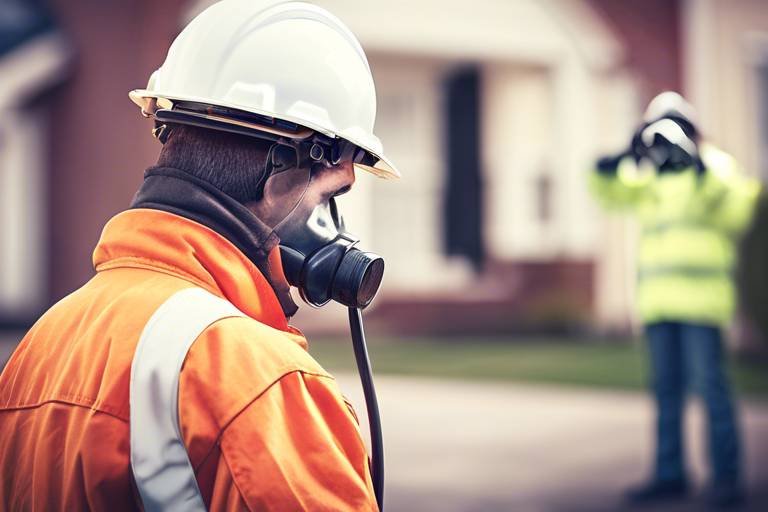When to Replace Your Home Security System
In today’s world, the safety of your home and loved ones is more crucial than ever. Your home security system acts as the frontline defense against potential threats, but how do you know when it’s time for an upgrade? It’s not just about having a system in place; it’s about ensuring that it’s effective, reliable, and equipped with the latest technology. In this article, we’ll explore the critical indicators that suggest it’s time to replace your home security system, the benefits that come with modern upgrades, and what features you should consider for optimal protection and peace of mind.
Identifying the signs that your current security system is outdated or ineffective can help you make informed decisions about upgrading to better protect your home. One of the most telling signs is the age of your system. If it’s more than a decade old, it may not be equipped to handle today’s security challenges. Additionally, if you find yourself frequently resetting your system or dealing with false alarms, this could indicate that your equipment is malfunctioning. Another red flag is the lack of connectivity; if your system doesn’t integrate with smartphones or smart home devices, you’re missing out on a level of convenience and control that modern systems offer.
Modern security systems offer advanced technology, improved monitoring, and enhanced features that can significantly increase the safety and convenience of your home. Imagine having the ability to monitor your home from anywhere in the world, receiving instant alerts to your smartphone, and even controlling your system with just your voice. These innovations not only provide peace of mind but also help deter potential intruders.
With options like 24/7 professional monitoring and smartphone alerts, modern systems provide real-time updates and immediate responses to security breaches. This means that if your alarm goes off, a monitoring service can quickly assess the situation and contact authorities if necessary. It’s like having a personal security guard watching over your home, even when you’re not there!
Many new security systems can integrate seamlessly with smart home technology, allowing for streamlined control and enhanced security features. Imagine being able to lock your doors, turn on the lights, and check your cameras all from a single app on your phone. This level of integration not only simplifies your life but also enhances your home’s security by allowing you to create customized routines and alerts.
Newer systems often include high-definition cameras, night vision, and motion detection, providing comprehensive coverage and clarity for your security needs. These advanced surveillance features ensure that you can see what’s happening around your home at any time of day or night. In fact, many modern cameras can send you alerts when they detect movement, allowing you to stay one step ahead of any potential threats.
While upgrading your security system involves an initial investment, it can lead to long-term savings through reduced insurance premiums and enhanced property value. Many insurance companies offer discounts for homes equipped with modern security systems, making the upgrade not just a safety measure but also a smart financial decision. Plus, knowing that your home is secure can provide priceless peace of mind.
Before deciding to replace your home security system, it's essential to evaluate its current performance and identify any weaknesses that need addressing. Take a close look at how well your system has been functioning. Are you satisfied with its performance, or do you find yourself frustrated with its limitations? This self-assessment can help you determine if it’s time to invest in a new system.
Older systems may lack the latest technology and features, making it crucial to assess how age impacts your system's effectiveness. If your system is more than ten years old, it’s likely missing out on significant advancements in security technology. Consider the evolution of smart home devices and monitoring services; if your system isn’t keeping up, it may be time to consider a replacement.
Frequent false alarms, connectivity issues, or equipment malfunctions are clear indicators that your current system may need replacement for reliable security. If you’re constantly resetting your system or dealing with unreliable sensors, it’s not just an inconvenience—it’s a potential security risk. Trust your instincts; if you feel that your system isn’t working as it should, it’s worth investigating your options for an upgrade.
Q: How often should I replace my home security system?
A: It's generally recommended to evaluate your system every 5-10 years, depending on its technology and performance. If you notice any signs of inefficiency or outdated features, consider upgrading sooner.
Q: Will upgrading my security system be expensive?
A: While there is an initial investment, modern systems often lead to long-term savings through insurance discounts and increased property value.
Q: Can I install a new security system myself?
A: Many modern systems are designed for easy DIY installation, but if you prefer professional help, many companies offer installation services.
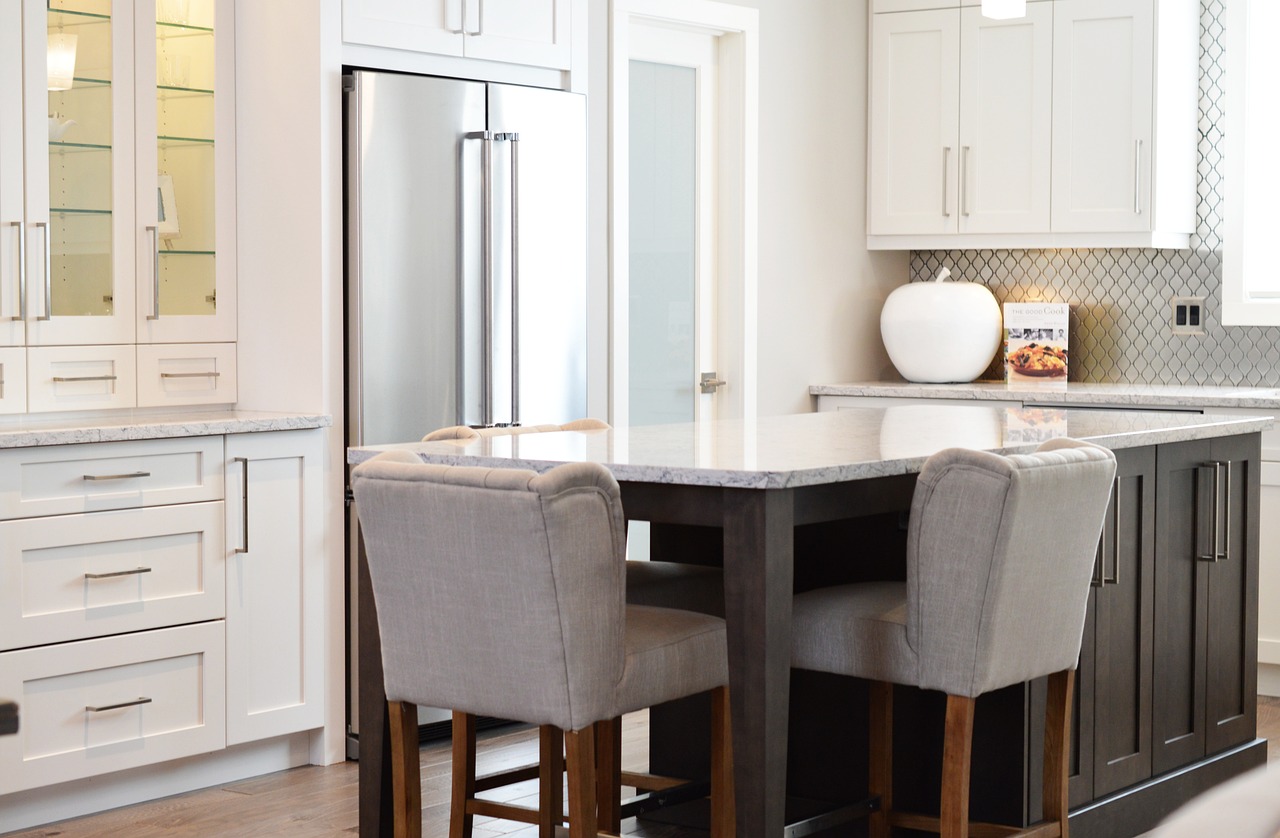
Signs It's Time for an Upgrade
Recognizing when to replace your home security system can be a game-changer for your peace of mind and safety. It’s not just about having a system in place; it’s about having a system that works effectively. So, how do you know when it’s time to make that leap? Here are some critical indicators that your current setup might be more of a liability than an asset.
First and foremost, consider the age of your system. If your security system is over a decade old, it’s likely lacking the latest technology that newer systems offer. Just like how we upgrade our smartphones every few years to keep up with advancements, your security system should also see a refresh. An outdated system may not only be less effective but also more susceptible to hacking and other vulnerabilities. Imagine relying on a flip phone in a world of smartphones—doesn’t sound too secure, does it?
Another sign to watch for is performance issues. If you find yourself dealing with frequent false alarms, connectivity problems, or equipment malfunctions, it’s time to re-evaluate. These issues can lead to frustration and may even cause you to ignore the alerts altogether, which defeats the purpose of having a security system in the first place. Think of it like having a smoke detector that goes off every time you cook; eventually, you might just stop paying attention to it, and that’s when real danger could strike.
Additionally, if your system lacks modern features like smartphone integration or remote access, you might be missing out on significant benefits. Today’s systems allow you to monitor your home from anywhere, receive instant alerts, and even control your security settings with a simple tap on your phone. If you’re still using a keypad to disarm your system, it’s time to consider an upgrade that offers more convenience and control.
Lastly, if you feel uneasy about your home’s security despite having a system in place, trust your instincts. Feeling secure in your own home is invaluable. If your current system isn’t providing that, it’s a strong indicator that you should explore newer options. Upgrading your home security isn’t just about having the latest gadgets; it’s about ensuring that you and your loved ones feel safe and protected.
In summary, if your system is old, frequently malfunctioning, lacking modern features, or simply making you feel insecure, it’s time to take action. Investing in a new security system can provide you with the peace of mind you deserve, knowing that your home is truly protected.
- How often should I upgrade my security system? It's recommended to evaluate your system every 5-10 years, depending on technological advancements and performance issues.
- What features should I look for in a new security system? Look for features like smartphone integration, high-definition cameras, motion detection, and 24/7 monitoring.
- Will upgrading my security system save me money? Yes, many insurance companies offer discounts for modern security systems, which can lead to long-term savings.

Benefits of Modern Security Systems
When it comes to protecting your home, modern security systems are like having a trusty sidekick that’s always on alert. They offer a plethora of benefits that not only enhance your safety but also provide you with peace of mind. Imagine being able to monitor your home from anywhere in the world, all through a simple app on your smartphone. With the rise of technology, these systems have evolved into sophisticated tools that cater to the needs of the modern homeowner.
One of the standout features of contemporary security systems is their improved monitoring options. Gone are the days of relying solely on loud alarms to deter intruders. Now, you can opt for 24/7 professional monitoring services that keep a watchful eye on your property, ready to respond at a moment's notice. This means that even if you're away on vacation, a team of experts is ensuring your home remains secure. Plus, with instant smartphone alerts, you’ll be notified of any suspicious activity in real-time, allowing you to take immediate action.
Another remarkable advantage is the ability to integrate your security system with other smart home devices. Think of it as creating a cohesive network of security and convenience. For instance, your security cameras can work in tandem with smart lights to create the illusion that someone is home, even when you're not. This integration not only enhances your security but also simplifies your life, as you can control everything from your thermostat to your locks right from your phone. It’s like having a personal assistant dedicated to your home’s safety!
Modern security systems are equipped with advanced surveillance features that make traditional systems look outdated. High-definition cameras provide crystal-clear images, allowing you to identify faces and license plates with ease. Night vision capabilities ensure that your property is monitored even in complete darkness, while motion detection alerts you to any movement around your home. Imagine being able to review footage from your backyard while sipping coffee on your couch; that’s the kind of comfort modern technology brings!
Now, you might be wondering about the cost. Sure, upgrading your security system might seem like a hefty investment upfront, but consider the long-term savings. Many insurance companies offer discounts on premiums for homes equipped with modern security systems. This means that over time, the system could essentially pay for itself. Additionally, a well-secured home can enhance your property value, making it a wise decision for the future.
In summary, the benefits of modern security systems are vast and varied. From improved monitoring options to seamless integration with smart home devices, these systems provide unparalleled protection and convenience. Investing in a modern security system is not just about keeping intruders at bay; it's about creating a safe haven for you and your loved ones. So, if you’re on the fence about upgrading, just remember: it’s better to be safe than sorry!
1. How do I know if my security system needs an upgrade?
If your system is outdated, frequently malfunctions, or lacks modern features like smartphone integration, it may be time for an upgrade.
2. Are modern security systems easy to install?
Many modern systems are designed for easy DIY installation, but professional installation is also available for those who prefer it.
3. Can I integrate my security system with other smart devices?
Absolutely! Many modern security systems can seamlessly integrate with a variety of smart home devices for enhanced convenience.
4. Will upgrading my security system save me money?
Yes, many homeowners experience lower insurance premiums and increased property value after upgrading their security systems.

Improved Monitoring Options
This article explores the critical indicators for replacing your home security system, the benefits of upgrading, and essential features to consider for optimal protection and peace of mind.
Identifying the signs that your current security system is outdated or ineffective can help you make informed decisions about upgrading to better protect your home.
Modern security systems offer advanced technology, improved monitoring, and enhanced features that can significantly increase the safety and convenience of your home.
In today's fast-paced world, having a home security system that offers is not just a luxury; it's a necessity. Imagine being able to receive instant alerts on your smartphone the moment something unusual happens at your home. With modern systems, this is not just a dream—it's a reality. These systems typically provide 24/7 professional monitoring, ensuring that trained security personnel are always on standby to respond to any alarms or alerts. This means that while you're out enjoying a night with friends or even while you're on vacation, your home is being watched over by experts.
Furthermore, many of these advanced systems come equipped with features that allow for real-time updates. For instance, if a door sensor is triggered, you'll receive an immediate notification on your mobile device, allowing you to take action swiftly. This level of responsiveness can make all the difference in a potential security breach. In addition to alerts, modern systems often include video feeds that you can access from anywhere. You can check in on your home through your smartphone, giving you peace of mind that your property is secure.
Another exciting feature of improved monitoring options is the ability to integrate with emergency services. In the event of a break-in, your system can automatically notify the police, saving precious time and ensuring that help is on the way as quickly as possible. This integration can be a game-changer, especially in critical situations where every second counts.
To give you a clearer picture, here’s a comparison table illustrating the differences between traditional and modern monitoring options:
| Feature | Traditional Monitoring | Modern Monitoring |
|---|---|---|
| Monitoring Type | Basic Alarm Response | 24/7 Professional Monitoring |
| Instant Alerts | No | Yes |
| Smartphone Access | No | Yes |
| Emergency Service Integration | Manual Notification | Automatic Notification |
In summary, the improved monitoring options available in modern security systems not only enhance your home’s safety but also provide you with unparalleled convenience. Whether it's receiving alerts on your phone, accessing live video feeds, or having emergency services notified automatically, these features are designed to keep you connected and in control. So, if you find yourself relying on an outdated system, it may be time to consider an upgrade that offers these essential benefits.
While upgrading your security system involves an initial investment, it can lead to long-term savings through reduced insurance premiums and enhanced property value.
Before deciding to replace your home security system, it's essential to evaluate its current performance and identify any weaknesses that need addressing.
Older systems may lack the latest technology and features, making it crucial to assess how age impacts your system's effectiveness.
Frequent false alarms, connectivity issues, or equipment malfunctions are clear indicators that your current system may need replacement for reliable security.
- How often should I replace my home security system? It's recommended to evaluate your system every 5-7 years for technological advancements.
- What are the signs that my security system is outdated? Frequent false alarms, lack of smartphone integration, and poor monitoring options are key indicators.
- Will upgrading my security system save me money? Yes, modern systems can lead to lower insurance premiums and increase your home's value.
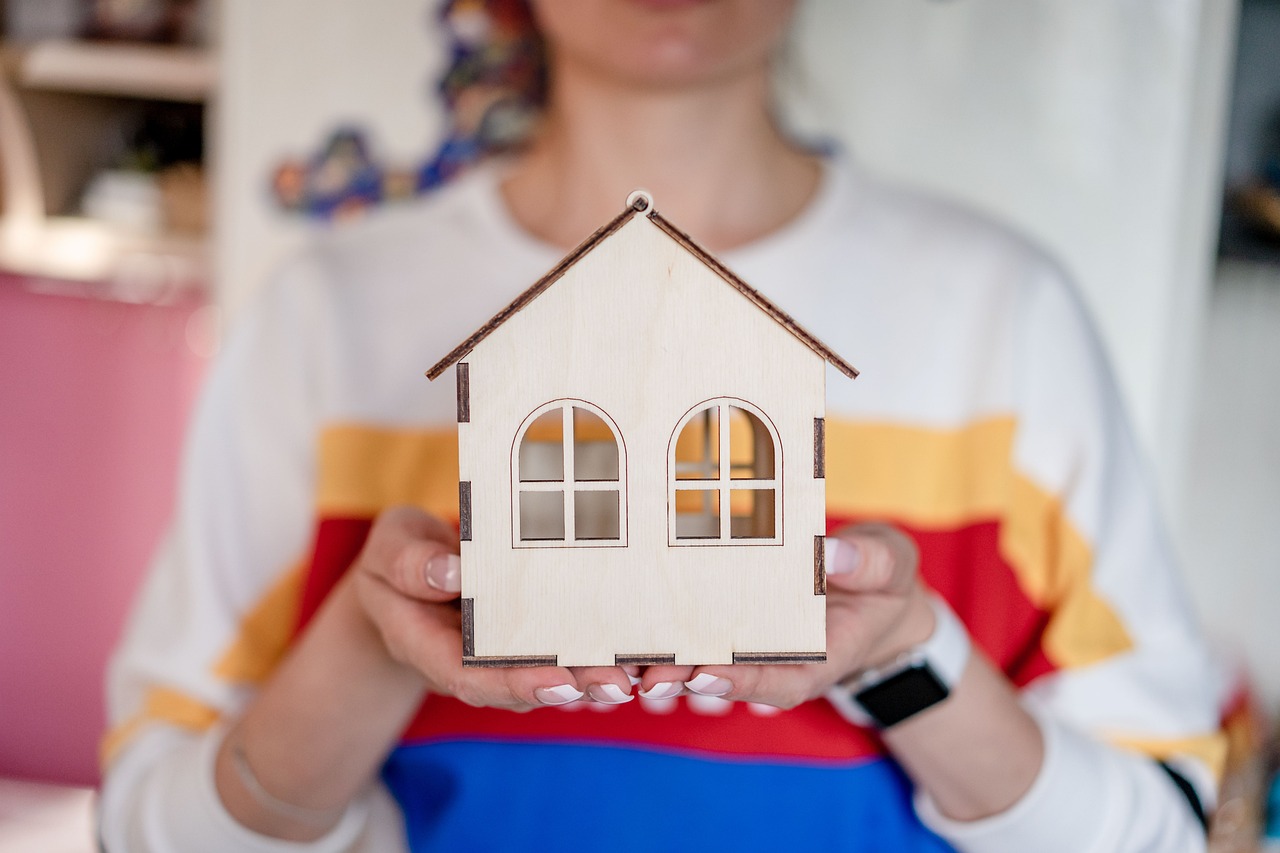
Integration with Smart Home Devices
In today's tech-savvy world, integrating your home security system with smart home devices is not just a luxury; it's becoming a necessity. Imagine being able to control your lights, thermostat, and security cameras all from the same app on your smartphone. This seamless integration not only enhances your security but also elevates your entire home automation experience. By connecting your security system with devices like smart locks, doorbell cameras, and motion sensors, you create a more cohesive and responsive environment.
For instance, when your security system detects motion at your front door, it can automatically trigger your smart lights to turn on, illuminating the area and potentially deterring intruders. This layered approach to security ensures that your home is not only monitored but also responsive to various situations. Furthermore, many modern security systems allow you to receive real-time alerts on your smartphone, keeping you informed no matter where you are. You can check your camera feeds, lock or unlock doors, and even communicate with visitors at your doorstep—all with a few taps on your device.
Moreover, the integration doesn't stop at just monitoring. You can set up routines that align with your daily life. For example, when you leave home, your security system can automatically lock all doors, turn off lights, and adjust your thermostat to save energy. This not only enhances your security but also offers convenience and peace of mind. With the ability to customize these interactions, you can create a living space that adapts to your lifestyle.
Additionally, many of these systems are compatible with voice assistants like Amazon Alexa or Google Assistant, allowing you to control your security settings with simple voice commands. Imagine arriving home with your hands full, and all you have to do is say, “Hey Google, unlock the front door,” and voila! Your home welcomes you in without the hassle of fumbling for keys.
In conclusion, the integration of smart home devices with your security system not only enhances safety but also enriches your overall living experience. As technology continues to evolve, embracing these innovations can provide you with a smarter, safer, and more efficient home.
- What are the benefits of integrating my security system with smart home devices?
Integrating your security system with smart home devices enhances convenience, improves monitoring, and allows for automated responses to security events. - Can I control my security system remotely?
Yes, most modern security systems allow remote access via smartphone apps, enabling you to monitor and control your system from anywhere. - Do I need a professional to set up smart home integration?
While many systems offer user-friendly installation, some may require professional help, especially for complex setups or older systems.

Advanced Surveillance Features
When it comes to securing your home, having can make all the difference. Imagine being able to monitor your property in real-time, regardless of where you are. This is not just a luxury anymore; it’s a necessity in our increasingly uncertain world. Modern security systems come equipped with high-definition cameras that provide crystal-clear images, allowing you to identify faces, license plates, and any suspicious activity with ease.
One of the standout features of today’s surveillance technology is night vision. Have you ever wondered what happens around your home after the sun sets? With night vision capabilities, your security cameras can keep watch even in complete darkness. This ensures that no matter the time of day, your home is under constant surveillance, giving you peace of mind. Furthermore, many systems now include motion detection technology, which can alert you immediately when movement is detected in designated areas. This not only helps in catching potential intruders but also allows you to monitor pets or children playing outside.
What's more, the integration of these features with your smartphone means you can receive real-time alerts and view live feeds directly from your device. This level of connectivity is a game-changer, as it allows you to respond swiftly to any situation. For instance, if your camera detects movement while you’re away, you can check the live feed and determine whether it's a harmless passerby or a potential threat. In fact, many systems even allow you to communicate through the camera, giving you the ability to scare off intruders or reassure loved ones from afar.
To illustrate the benefits of these advanced features, consider the following table that highlights key aspects of modern surveillance systems:
| Feature | Description | Benefits |
|---|---|---|
| High-Definition Cameras | Provides clear images and video. | Easy identification of faces and details. |
| Night Vision | Allows visibility in low-light conditions. | Continuous monitoring, day or night. |
| Motion Detection | Alerts you to movement in specific areas. | Quick response to potential intrusions. |
| Smartphone Integration | Real-time alerts and live feed access. | Control and monitor your home from anywhere. |
In conclusion, investing in a security system with advanced surveillance features is not just about keeping intruders at bay; it’s about creating a safe environment for your family. The combination of high-definition cameras, night vision, and motion detection, all accessible through your smartphone, transforms your security experience into something proactive and responsive. So ask yourself: Is your current system equipped to handle today’s security challenges? If not, it might be time to consider an upgrade.
- How do I know if my security system needs an upgrade? Look for signs like frequent malfunctions, outdated technology, or lack of features that modern systems offer.
- What are the benefits of high-definition cameras? They provide clearer images, which are crucial for identifying faces and details in case of an incident.
- Is night vision necessary for home security? Yes, it allows for effective monitoring even in low-light conditions, enhancing your overall security.
- Can I integrate my security system with other smart home devices? Most modern security systems are designed to integrate seamlessly with various smart home technologies.
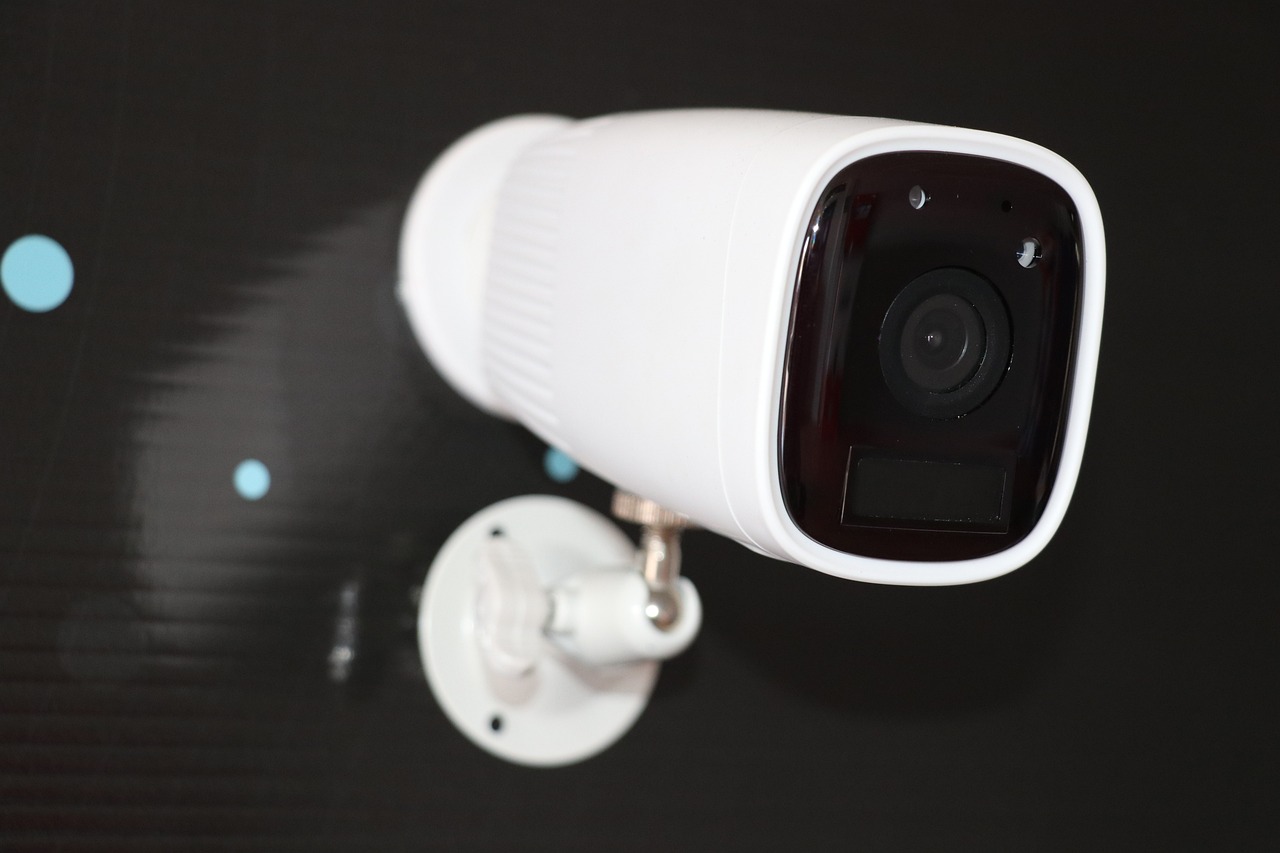
Cost Considerations
When it comes to upgrading your home security system, one of the most pressing concerns is often the cost. It's important to recognize that while there is an initial investment required for a new system, the long-term benefits can far outweigh these upfront expenses. Think of it like buying a quality pair of shoes; yes, you might spend a bit more at first, but the durability and comfort you gain will save you money in the long run. So, how do you weigh the costs versus the benefits?
First, consider the potential savings on your homeowner's insurance. Many insurance companies offer discounts for homes equipped with modern security systems. This means that while you might be spending more initially, you could see a decrease in your monthly premiums, effectively offsetting some of the costs. Over time, this could lead to significant savings. For instance, if your insurance premium drops by 10% due to your upgraded system, you could save hundreds of dollars annually.
Next, let’s talk about the value of peace of mind. Investing in a modern security system can provide you with a sense of safety that is priceless. Knowing that your home is protected with the latest technology allows you to sleep better at night and enjoy your daily activities without the constant worry of a potential break-in. This emotional value is hard to quantify, but it’s an essential aspect of what a security system provides.
Additionally, consider the impact on property value. Homes equipped with advanced security systems can be more attractive to buyers, potentially increasing your home’s market value. In a competitive real estate market, having a modern security system can set your home apart from others, making it a worthwhile investment if you plan to sell in the future.
Finally, it’s essential to evaluate the total cost of ownership. This includes not just the purchase price of the equipment but also installation costs, monitoring fees, and maintenance. Here’s a quick breakdown of what to consider:
| Cost Component | Estimated Cost |
|---|---|
| Equipment Purchase | $300 - $1,500 |
| Installation Fees | $100 - $500 |
| Monthly Monitoring Fees | $15 - $50 |
| Maintenance Costs | $0 - $200 (annual) |
By understanding these costs, you can make a more informed decision about whether to upgrade your home security system. Remember, the goal is to find a balance between affordability and the level of protection you desire. After all, investing in your home’s security is investing in your peace of mind.
- How much should I expect to spend on a new security system? The costs can vary widely based on the type of system you choose, but expect to spend anywhere from $300 to $1,500 for equipment, plus installation and monitoring fees.
- Will upgrading my security system really lower my insurance rates? Yes, many insurance companies offer discounts for homes with modern security systems, so it's worth checking with your provider.
- How often should I replace my security system? It’s recommended to evaluate your system every 5 to 7 years, but if you notice performance issues or if the technology becomes outdated, it may be time for an upgrade sooner.
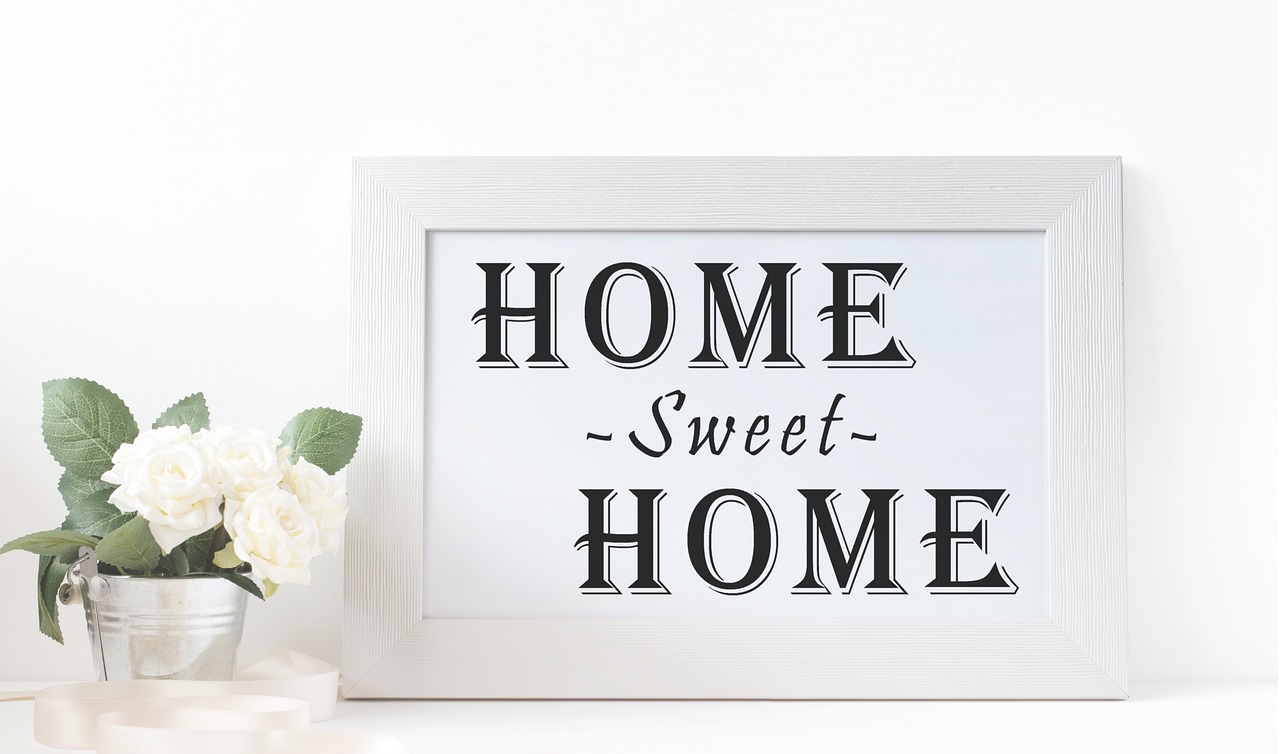
Assessing Your Current System
Before you leap into the world of shiny new security gadgets, it's essential to take a step back and assess your current home security system. Think of it as checking the oil in your car before a long road trip; you wouldn't want to drive without knowing if everything is running smoothly, right? Evaluating your existing system can reveal whether it’s still up to the task of protecting your home or if it’s time to consider an upgrade.
Start by examining the age of your system. Just like technology evolves, so do security systems. If your system is over a decade old, it might lack the advanced features that modern systems offer. For example, older systems may not support smartphone integration or remote monitoring, which are now standard in many new models. This can leave you vulnerable, especially when you're away from home. So, how old is your system? If it’s pushing ten years or more, it’s time to seriously consider a replacement.
Next, let’s talk about performance issues. Are you constantly dealing with false alarms? Does your system frequently disconnect from Wi-Fi? If so, these are clear signs that your current setup may be falling short. A security system should provide peace of mind, not add stress to your life. Frequent malfunctions can lead to a lack of trust in your system, which defeats the purpose of having one in the first place. In fact, a study showed that homes with unreliable security systems are more likely to be targeted by burglars. So, if your system is acting up, it might be time to bid it farewell.
Additionally, consider the features that your current system offers. Does it have the capability to integrate with other smart home devices? If not, you're missing out on a whole new level of convenience. Imagine being able to control your lights, thermostat, and security cameras all from one app on your smartphone. This level of integration not only enhances your safety but also adds convenience to your daily life. If your current system doesn’t offer this, it may be time to upgrade.
Finally, it’s important to assess your personal needs. Have you experienced any changes in your lifestyle, such as getting a pet or having kids? These changes can impact your security needs. For instance, if you now have a toddler who loves to explore, you might want a system that includes door/window sensors or cameras that alert you when someone enters a restricted area. If your current system doesn’t cater to your evolving needs, it’s a clear indicator that an upgrade is in order.
In summary, assessing your current security system involves looking at its age, performance, features, and your personal needs. By taking the time to evaluate these aspects, you can make an informed decision about whether to stick with your current system or invest in something more advanced and reliable.
- How often should I assess my home security system? It's a good idea to evaluate your system at least once a year, or whenever you experience performance issues or significant life changes.
- What features should I look for in a new security system? Look for features like smartphone integration, high-definition cameras, motion detection, and 24/7 professional monitoring.
- Can I upgrade my existing system instead of replacing it? Depending on the system, some components can be upgraded, but often a full replacement provides the best benefits.
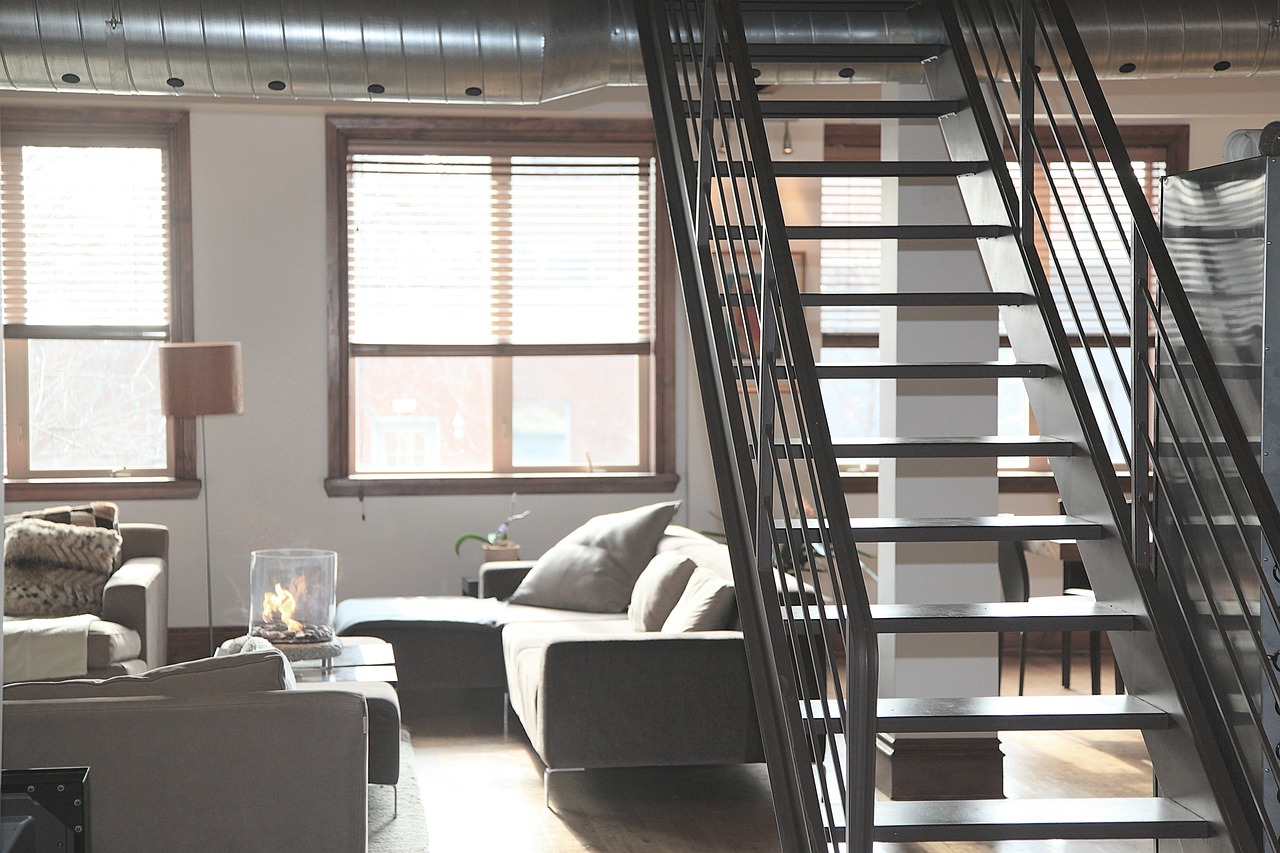
Evaluating System Age
When it comes to home security, age can be more than just a number; it can be a significant factor in determining the effectiveness of your system. Just like a car, a security system can become outdated and less reliable over time. So, how do you know if your system is getting long in the tooth? Start by considering its age and the technology it employs. If your system is more than five years old, it may be time to evaluate its performance and capabilities.
Here are some key points to consider when assessing the age of your home security system:
- Technology Advancements: The security industry is continuously evolving, with new technologies emerging at a rapid pace. If your system lacks features like smartphone connectivity or remote monitoring, it might be time for an upgrade.
- Compatibility Issues: Older systems may not integrate well with modern smart home devices. If you're looking to enhance your home’s security with smart locks, cameras, or alarms, an outdated system could be a barrier.
- Support and Maintenance: As systems age, manufacturers may discontinue support for older models. This can leave you vulnerable if your equipment malfunctions and you can’t find replacement parts or technical support.
Moreover, consider the average lifespan of various components in your security system. For instance, while some devices like cameras and sensors can last up to ten years, others like batteries may need replacement every few years. A table summarizing the typical lifespan of security system components can help clarify this:
| Component | Average Lifespan |
|---|---|
| Cameras | 5-10 years |
| Sensors | 5-7 years |
| Control Panel | 5-7 years |
| Batteries | 2-5 years |
In conclusion, evaluating the age of your security system is crucial for ensuring your home remains well-protected. If your system is showing its age, it’s time to consider an upgrade. Remember, investing in a modern security system not only enhances your safety but also gives you peace of mind knowing that you’re utilizing the latest technology available.
- How often should I evaluate my home security system? It's recommended to assess your system annually, but if you notice any performance issues, do it sooner.
- What are the signs that my security system is outdated? Look for lack of modern features, frequent malfunctions, or inability to integrate with smart home devices.
- Is upgrading my security system worth it? Absolutely! Modern systems offer better technology, improved monitoring, and can potentially lower your insurance premiums.
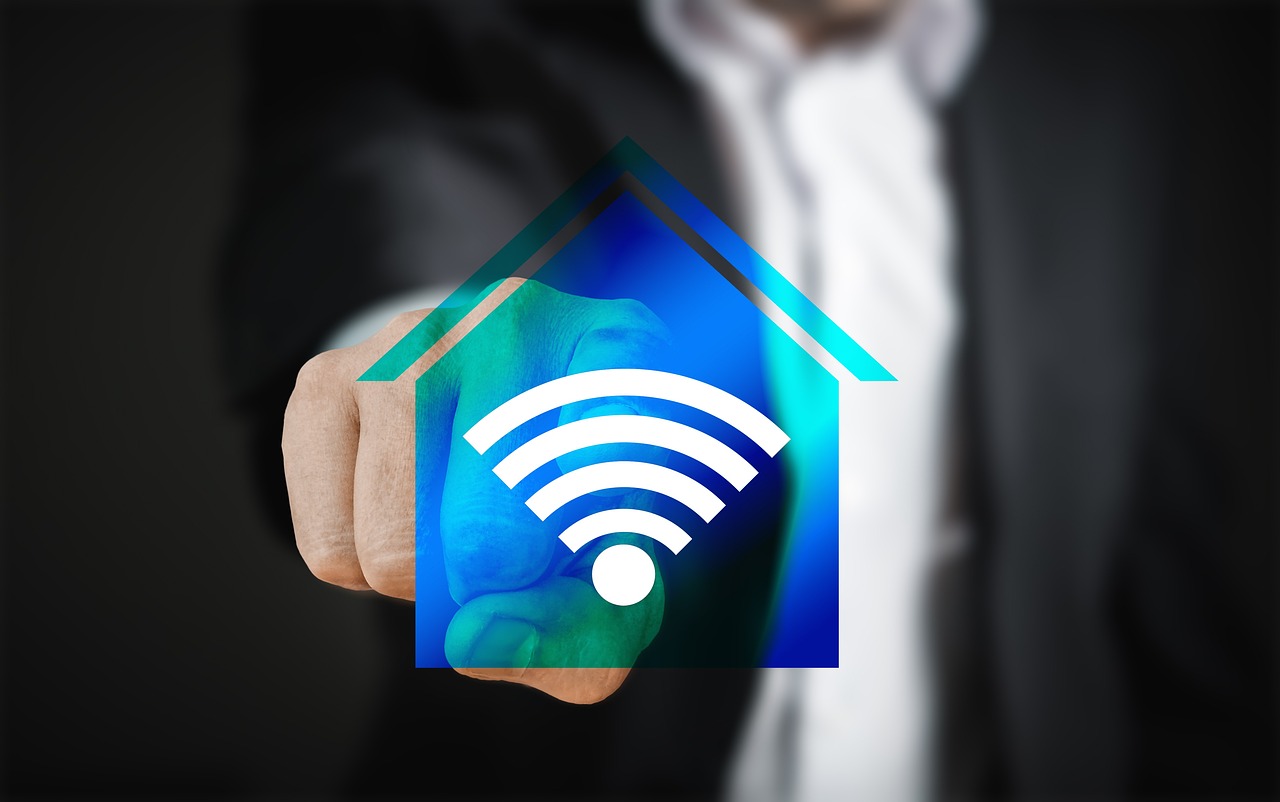
Performance Issues
When it comes to home security, performance is everything. Imagine this: you’re on vacation, enjoying the sun, when suddenly your phone buzzes with a notification from your security system. You check it, only to find out it was a false alarm triggered by a passing car. Frustrating, right? Frequent false alarms are one of the most significant indicators that your security system is not performing as it should. If your system is constantly alerting you without any real threat, it can lead to alarm fatigue, where you start ignoring alerts altogether. This is a dangerous mindset because when a genuine emergency occurs, you might overlook it.
Moreover, connectivity issues can also plague older systems. If your security cameras are frequently disconnecting from your Wi-Fi, or if the app you use to monitor your home is sluggish and unresponsive, it’s a clear sign that your system is struggling. In today’s fast-paced world, having a security system that can’t keep up with your lifestyle is like trying to run a marathon in flip-flops – it just won’t work. You need a system that provides reliable connectivity, ensuring you can monitor your home in real-time, no matter where you are.
Additionally, equipment malfunctions can be a telltale sign that your security system is on its last legs. If you find yourself calling customer support more often than you’d like, or if certain components, like door sensors or cameras, are failing to respond, it’s time to take a step back and evaluate your options. A malfunctioning system not only compromises your home’s security but can also lead to increased repair costs over time. You might think you’re saving money by sticking with an outdated system, but in reality, you could be throwing money down the drain.
To help you assess your current system’s performance, consider the following key indicators:
- False Alarms: Are you receiving alerts that turn out to be nothing?
- Connectivity: Is your system frequently losing connection or lagging?
- Malfunctions: Are you experiencing issues with sensors or cameras not working properly?
In conclusion, if you’re facing any of these performance issues, it’s essential to weigh the benefits of upgrading your home security system. After all, your peace of mind is priceless, and investing in a reliable system can make all the difference in protecting your home and loved ones.
- How often should I replace my home security system? It’s recommended to evaluate your system every 5-7 years, or sooner if you notice performance issues.
- Can I upgrade my existing security system instead of replacing it? Yes, many systems allow for upgrades or adding new features to enhance security.
- What features should I look for in a new security system? Look for features like smart home integration, high-definition cameras, and reliable monitoring options.
Frequently Asked Questions
- When should I consider replacing my home security system?
If your current system is over five years old, frequently malfunctions, or lacks modern features like smartphone alerts and remote access, it might be time for an upgrade. Keeping your home secure is paramount, and outdated systems can leave you vulnerable.
- What are the benefits of upgrading to a modern security system?
Modern security systems come with a host of advantages, including enhanced monitoring options, integration with smart home devices, and advanced surveillance features. These upgrades not only improve your home's security but also provide convenience and peace of mind.
- How can I assess the performance of my current security system?
Start by evaluating its age and noting any performance issues, such as false alarms or connectivity problems. If your system struggles to keep up with newer technology or frequently fails, it's a clear sign that an upgrade is necessary.
- Will upgrading my security system save me money in the long run?
Absolutely! While there’s an initial investment, many homeowners find that upgrading leads to lower insurance premiums and increased property value. Plus, the peace of mind that comes with a reliable system is priceless.
- Can I integrate my new security system with existing smart home devices?
Yes! Many modern security systems are designed to work seamlessly with smart home technology, allowing you to control everything from lighting to cameras through a single app. It’s like having a security command center right at your fingertips!
- What features should I look for in a new security system?
Look for features such as high-definition video surveillance, night vision, motion detection, and 24/7 professional monitoring. These elements can greatly enhance your security and ensure your home is protected at all times.


